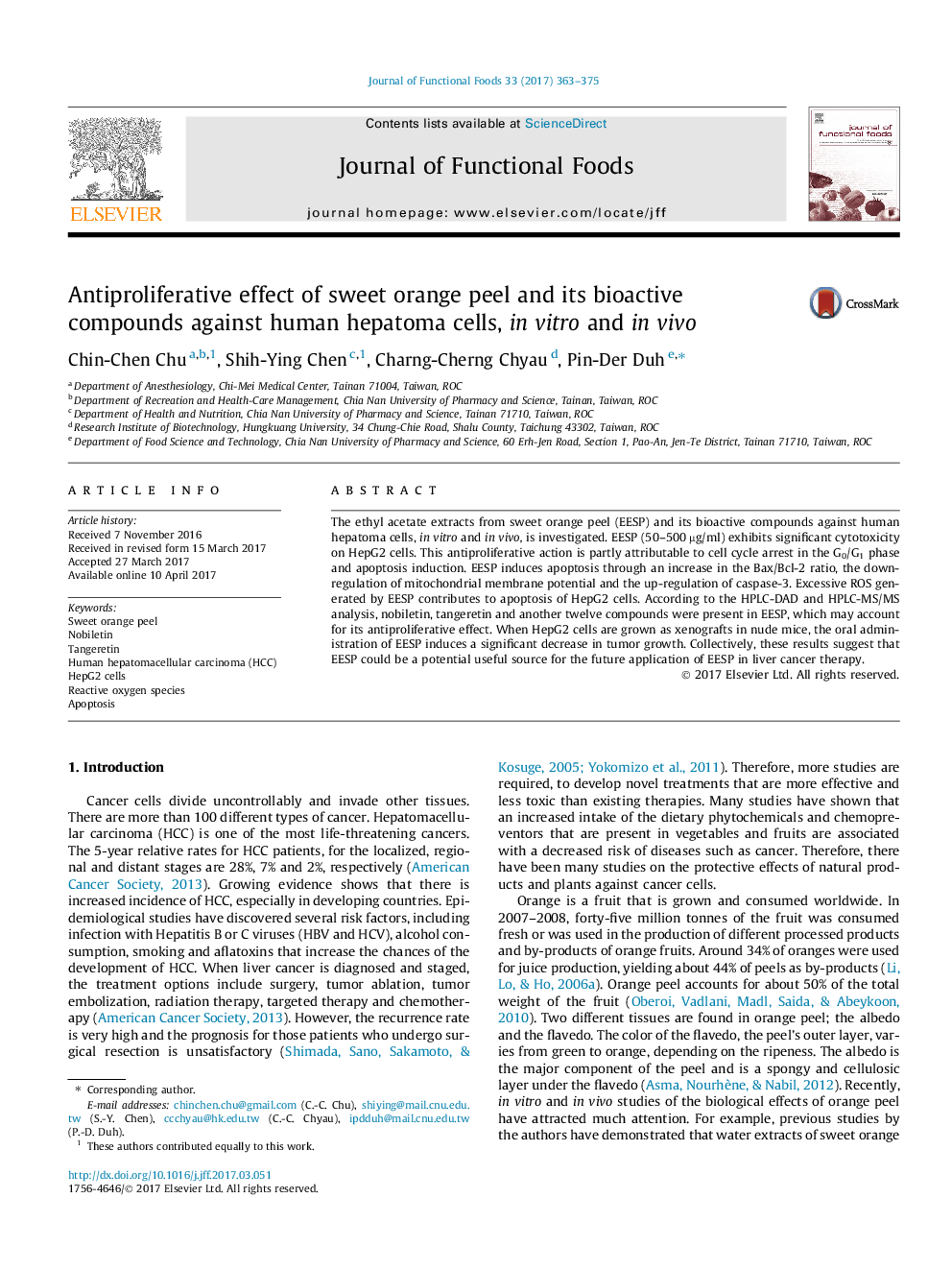| کد مقاله | کد نشریه | سال انتشار | مقاله انگلیسی | نسخه تمام متن |
|---|---|---|---|---|
| 5137137 | 1494533 | 2017 | 13 صفحه PDF | دانلود رایگان |

- EESP exhibits a significant cytotoxic effect on hepatoma HepG2 cells.
- EESP induces apoptosis of HepG2 cells.
- Excessive ROS generated by EESP contributes to apoptosis of HepG2 cells.
- Bioactive compounds present in EESP show antiproliferative effect on HepG2 cells.
- EESP significantly suppresses the growth of liver tumor xenografts in nude mice.
The ethyl acetate extracts from sweet orange peel (EESP) and its bioactive compounds against human hepatoma cells, in vitro and in vivo, is investigated. EESP (50-500 µg/ml) exhibits significant cytotoxicity on HepG2 cells. This antiproliferative action is partly attributable to cell cycle arrest in the G0/G1 phase and apoptosis induction. EESP induces apoptosis through an increase in the Bax/Bcl-2 ratio, the down-regulation of mitochondrial membrane potential and the up-regulation of caspase-3. Excessive ROS generated by EESP contributes to apoptosis of HepG2 cells. According to the HPLC-DAD and HPLC-MS/MS analysis, nobiletin, tangeretin and another twelve compounds were present in EESP, which may account for its antiproliferative effect. When HepG2 cells are grown as xenografts in nude mice, the oral administration of EESP induces a significant decrease in tumor growth. Collectively, these results suggest that EESP could be a potential useful source for the future application of EESP in liver cancer therapy.
Journal: Journal of Functional Foods - Volume 33, June 2017, Pages 363-375